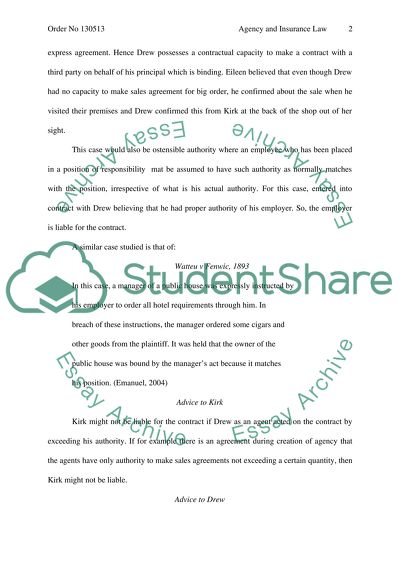Cite this document
(“Agency and insurance Law Case Study Example | Topics and Well Written Essays - 1250 words”, n.d.)
Agency and insurance Law Case Study Example | Topics and Well Written Essays - 1250 words. Retrieved from https://studentshare.org/law/1527297-agency-and-insurance-law
Agency and insurance Law Case Study Example | Topics and Well Written Essays - 1250 words. Retrieved from https://studentshare.org/law/1527297-agency-and-insurance-law
(Agency and Insurance Law Case Study Example | Topics and Well Written Essays - 1250 Words)
Agency and Insurance Law Case Study Example | Topics and Well Written Essays - 1250 Words. https://studentshare.org/law/1527297-agency-and-insurance-law.
Agency and Insurance Law Case Study Example | Topics and Well Written Essays - 1250 Words. https://studentshare.org/law/1527297-agency-and-insurance-law.
“Agency and Insurance Law Case Study Example | Topics and Well Written Essays - 1250 Words”, n.d. https://studentshare.org/law/1527297-agency-and-insurance-law.


